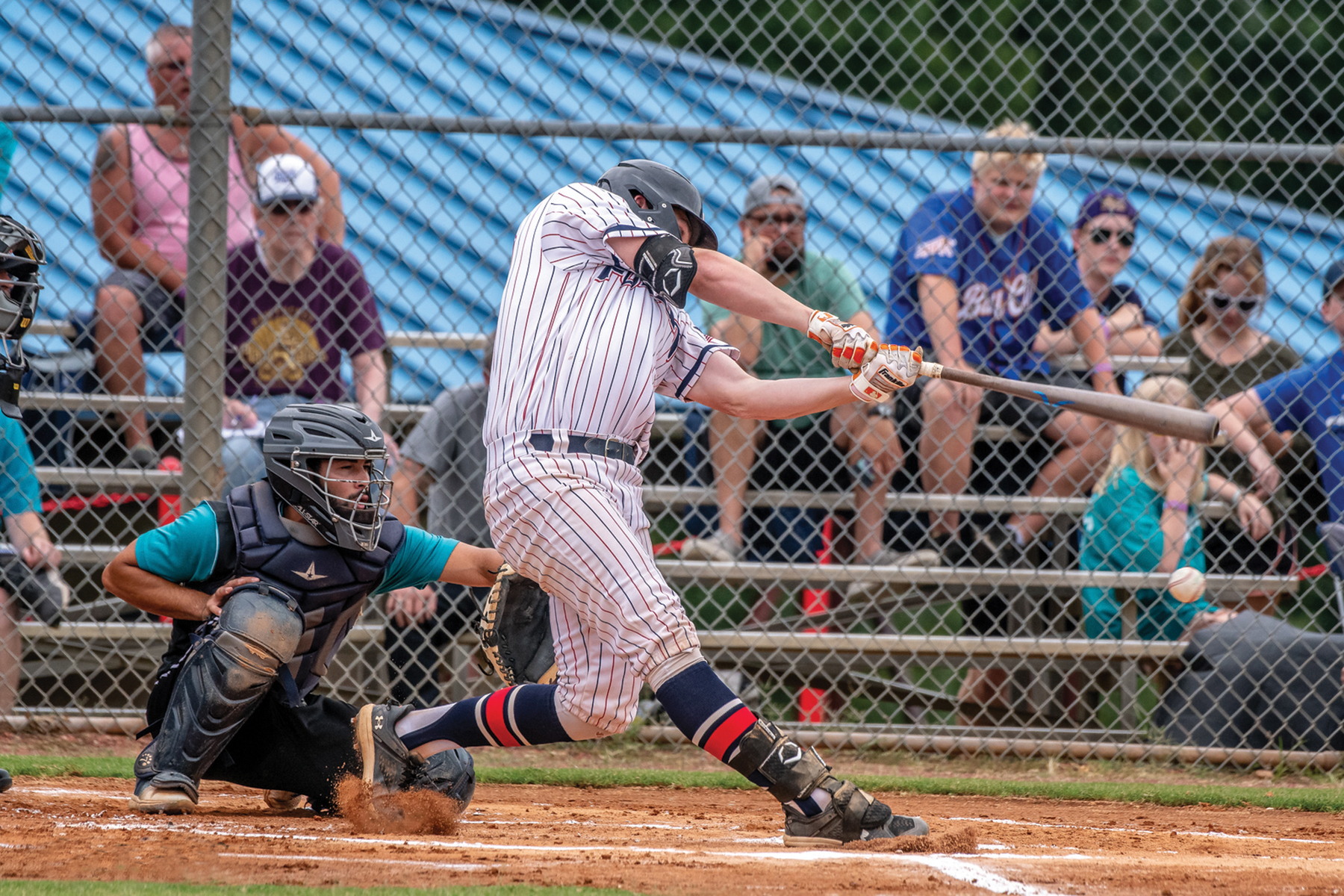Swinging Through Time
The Rich Legacy Of Baseball In Wake Forest

Baseball stands as one of the nation’s most cherished pastimes, weaving tales of camaraderie and timeless tradition. From the crack of the bat to the roar of the crowd, the sport embodies the spirit of unity and community that defines American culture. And within the Town of Wake Forest, it’s no different – baseball holds a special place in its heart and history.
Wake Forest College boasts a storied baseball legacy, dating back to its earliest intercollegiate matchups and its prestigious national championship. Today, this tradition echoes throughout the town, as Wake Forest remains a vibrant hub for baseball enthusiasts of all ages, with local middle and high school teams, a recreational league, and a collegiate summer program carrying the torch of this beloved pastime.
Wake Forest began fielding its baseball team back in 1891, marking the inception of a tradition that would help shape the town’s sporting identity. In that same year, Riddick Stadium at North Carolina Agricultural and Mechanical College (now NC State University) hosted the first intercollegiate baseball game in North Carolina. This historic event featured Wake Forest College and North Carolina Agricultural and Mechanical College, laying the groundwork for a longstanding tradition of collegiate baseball rivalry in the state. The significance of this inaugural matchup reverberated throughout North Carolina, setting the stage for future athletic encounters among its universities.
The athletic legacy of Wake Forest College has deep roots, tracing back to its humble beginnings on North Main Street with the establishment of “the playing grounds.” Initially serving as a hub for baseball, football, and military drill practices during World War I, the grounds evolved over time. In 1922, the Gore Athletic Field emerged as a modern facility, generously funded by the Gore family. This field, equipped with state-of-the-art amenities like a baseball diamond and football gridirons, became a focal point for athletic activities. Subsequent expansions, courtesy of Henry H. Groves, further enhanced the field, doubling its size and adding additional facilities, transforming it into Groves Athletic Field. This venue remained integral to the college’s athletic pursuits until its relocation in 1956, serving various sports teams and local community groups.
One of the most notable moments in Wake Forest College baseball history came in 1951 when the team participated in the Pan American Games held in Argentina. According to the Wake Forest Historical Museum, the Games were groundbreaking – an Olympic-style international competition designed to showcase America’s athletes, with the Wake Forest College baseball team chosen to represent the United States. Twelve players made the trip to Buenos Aires from February 25 - March 8. After claiming victory over Argentina, Brazil, Colombia, and Venezuela, their journey proudly ended in a second-place tie with Mexico, after losing to both Nicaragua and Cuba. Upon their return home, the players, boasting the silver medal, were hailed as heroes for “so openly and honestly representing their country in international competition.”
Several of those players remained on the team four years later when Wake Forest clinched the 1955 National Championship by defeating Western Michigan. Despite facing criticism for playing on a Sunday, Coach Taylor Sanford received the honor of national coach of the year, while catcher Linwood Holt earned the prestigious title of All-American. To this day, they stand as only one of two ACC baseball teams to have won the NCAA College Championship.
Today, Wake Forest FUNGO, the Town’s official collegiate summer woodbat baseball league, owned by town locals Joe John and Julie Kruse-John, continues the baseball tradition in Wake Forest, bringing together college athletes from different levels who compete during the summer season. Their mission is to bring the community together through the love of the sport. The team’s recruitment process involves scouting and vetting to ensure the highest quality athletes are selected, and their participation in the Old North State League college summer leagues contributes to the growth and recognition of collegiate summer baseball in the area.
FUNGO’s impact goes beyond the field and the bleachers, as they actively engage with the community through various initiatives. Partnerships with local businesses and involvement in community events highlight the team’s dedication to fostering community connections. Additionally, FUNGO’s renovations for Flaherty Park aim to transform it into a vibrant hub for leisure and community engagement, further enhancing the quality of life for area residents.
As Wake Forest FUNGO continues to evolve, it leaves a lasting legacy for the community it proudly represents. The baseball fields in Wake Forest continue to host renowned teams from Heritage High School and Wake Forest High School, preserving the tradition of excellence in athletics. Moreover, recreational t-ball and baseball leagues for youth ensure that the love for the game is passed down to future generations, further cementing Wake Forest’s reputation as a baseball destination with a rich and storied history.
Special thanks to Carolyn Rice and the Wake Forest Historical Museum. To learn more about the history of baseball in Wake Forest, please stop by the Museum, located at 414 N. Main Street in Wake Forest, or visit wakeforestmuseum.org.
To learn more about Wake Forest FUNGO, including their summer schedule that kicks off in May, and to purchase advance tickets, visit wakeforestfungo.com.
Photo courtesy of Bob Stewart Photography (bobstewartphoto.com).

